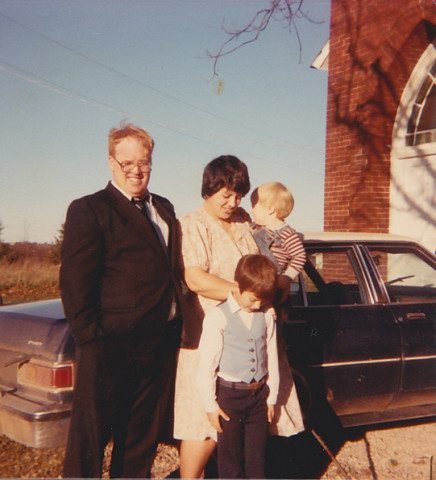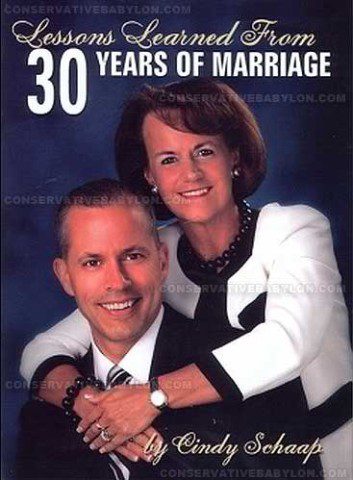
Over the years, I heard countless sermons, both during church services and at pastor’s conferences. I have also spent extensive time talking shop with my colleagues in the ministry. Needless to say, I have heard some interesting, outlandish, and, at times, insane statements on all sorts of subjects. What follows are a few of the things I heard. I give them to you as I remember them. Some of the quotes are forty-plus years old, so they may not be verbatim. Unless otherwise noted, quotes are from Sunday sermons.
The Bible says in 1 Peter 4:1, Arm Yourselves! (The speaker pushed his suit coat back and pulled out a revolver. The crowd went wild.) — Jack Wood, Baptist evangelist, said at a preacher’s conference in Rossville, Georgia
Go to Hell for all I care. No, I don’t mean that. Yes, I do. Go to Hell for all I care — Tom Malone, pastor of Emmanuel Baptist Church, Pontiac, Michigan
Don’t let the door hit you on the way out! (Said to a man who got up to leave during the sermon.) — Tom Malone, pastor of Emmanuel Baptist Church, Pontiac, Michigan
Who cares about the hole in the ozone layer? That just means there will be a bigger hole for Jesus to come through when he returns to earth again. — Bruce Gerencser, pastor of Somerset Baptist Church, Somerset, Ohio
Speaking of Matthew 5:28. But I say unto you, That whosoever looketh on a woman to lust after her hath committed adultery with her already in his heart, When a good looking woman comes your way, it’s not the first look that’s a sin; it’s the second one. So just make sure the first look is a long one. — Unnamed Baptist evangelist to a group of preachers, including fifteen-year-old Bruce Gerencser, at Trinity Baptist Church in Findlay, Ohio
Girl, when you climb into the backseat with a boy, I hope the only face you see is mine. — Baptist Evangelist Don Hardman (who came out of the pulpit, stood right in front of a teen girl, pointed his finger, and said the aforementioned quote), said during a revival meeting at Somerset Baptist Church, Somerset, Ohio
No girl has ever gotten pregnant without holding hands with a boy first. — Bruce Gerencser, pastor of Somerset Baptist Church, Somerset, Ohio
I have checked the tithing records, and it has come to my attention that there are some church employees who are not tithing. Either you will start tithing or I will have your tithe taken out of your check. — James Dennis, Newark Baptist Temple, Heath, Ohio
I don’t know, I have never, never lost. — Jack Hyles, First Baptist Church, Hammond, Indiana (answering someone who asked Hyles how he responded when he lost), said at a Sword of the Lord conference held at the Newark Baptist Temple, Heath, Ohio
Years ago, some men were drilling a deep hole towards the center of the earth. Suddenly, they heard what sounded like voices and screams. The men got a microphone and lowered it into the hole, and sure enough they heard people screaming. Hell is real! — Bill Beard, pastor of Lighthouse Memorial Church, Millersport, Ohio
If the King James Bible was good enough for the Apostle Paul, it is good enough for me. — Unnamed preacher at a Sword of the Lord conference held at the Newark Baptist Temple, Heath, Ohio
God doesn’t use quitters! — Tom Malone, Emmanuel Baptist Church, Pontiac, Michigan
The government is coming to take our guns. It’s the duty of every Christian to own guns so they can defend themselves. — John Williams, Baptist evangelist, said at a revival held at Somerset Baptist Church, Somerset, Ohio
There was a man whom God called to be a preacher. Instead of obeying God, the man took a secular job, married, and he and his wife had several children. One day, his wife and children were killed in an automobile accident. At the funeral home, God said to the man, now will you serve me? The man began weeping, and said to God, yes, I will serve you. I ask you, what will God have to take away from you for you to serve him? — Greg Carpenter, preacher
Divorce is always a sin. — Keith Troyer, Fallsburg Baptist Church, Fallsburg, Ohio
Your girlfriend’s skirt is too short and it is immodest. (This judgment was said to me, not my girlfriend. I replied, don’t look. Were her skirts too short? Not from my vantage point.) — Chuck Cofty, Sierra Vista Baptist Church, Sierra Vista, Arizona
What’s your favorite quote from your days as an Evangelical Christian? Please share them in the comment section.
Bruce Gerencser, 68, lives in rural Northwest Ohio with his wife of 47 years. He and his wife have six grown children and sixteen grandchildren. Bruce pastored Evangelical churches for twenty-five years in Ohio, Texas, and Michigan. Bruce left the ministry in 2005, and in 2008 he left Christianity. Bruce is now a humanist and an atheist.
Your comments are welcome and appreciated. All first-time comments are moderated. Please read the commenting rules before commenting.
You can email Bruce via the Contact Form.
















